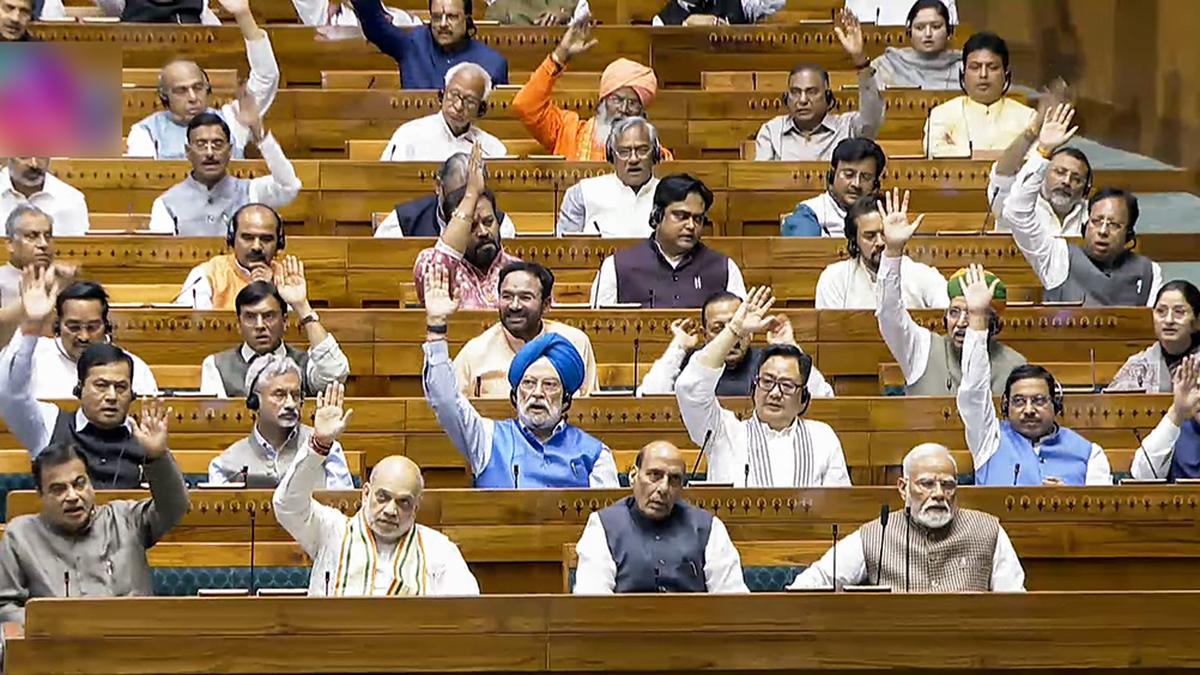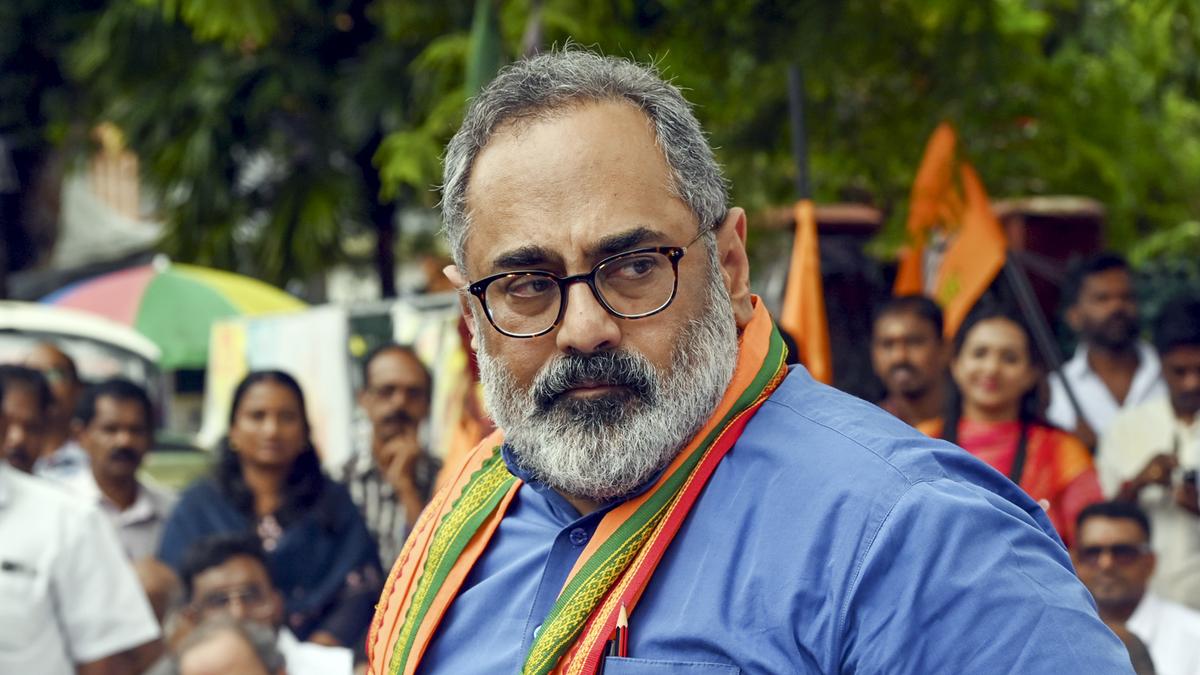Prime Minister Narendra Modi, Defence Minister Rajnath Singh, Union Home Minister Amit Shah, Union Minister Nitin Gadkari and others in Lok Sabha during the Budget Session, in New Delhi. File.
| Photo Credit: ANI
On these numbers hangs a tale, of changing loyalties and the apparent restoration of the BJP’s political hegemony: the Waqf Amendment Bill, 2025, cleared the Lok Sabha with 288 MPs in favour, and 232 against, and passed the Rajya Sabha with 128 votes in favour and 95 against. Parsing the figures, it is clear that the BJP’s allies in the ruling NDA are firmly back at its side.
The parties in the middle, the Biju Janata Dal and YSR Congress Party, did not issue any whip to their MPs on how to vote on the Bill in the Rajya Sabha.
This was not the situation when the government first brought in the Waqf Bill, in August 2024, in the first Parliament Session after the Lok Sabha election. The Bill was referred to a Joint Parliamentary Committee (JPC) on the same day, reportedly at the behest of the BJP’s own allies — the Janata Dal (United), the Telegu Desam Party (TDP) and the Lok Janshakti Party (LJP) who were keen to protect their minority support bases.
Coalition politics
Again in August 2024, it was the BJP’s ally Chirag Paswan who protested against any plans for lateral entry into the Union Public Service Commission (UPSC) which would not be subject to reservations for the Scheduled Castes and Tribes and other backward classes as in regular recruitment. The government had to walk back that proposal.
August did not get any better when concerns by stakeholders pushed the government to also put plans for a Broadcasting Services (Regulation) Bill on hold.
It seeemed that India was firmly back in the coalition era of allies flexing their muscles and forcing the rollback of decisions.
Reclaiming authority
Regardless of the rhetoric surrounding the actual content of the legislation, therefore, the passage of the Waqf Bill in both Houses this week has more to do with the fact that the Modi government seems to have rediscovered its mojo, and reclaimed its political authority.
The comprehensive electoral victories posted by the BJP in Maharashtra, Haryana, and then Delhi have contributed a lot to the restoration of the hegemonic political position that the BJP has occupied for the last decade or so.
The political compulsions of its allies have also contributed to the situation — in Andhra Pradesh, Chief Minister N. Chandrababu Naidu is anxious to gain Central funds and support for the State, while in Bihar, the increasingly frail health of Bihar Chief Minister Nitish Kumar has seen the JD(U) drift even closer to the BJP’s political programmes. In a way, the allies, more than ever in the history of the NDA, have embedded themselves into the BJP’s agenda. The NDA — which includes the BJP, JD(U), LJP, and the Hindustan Awaam Morcha (HAM) — will enter the upcoming Bihar election on a polarisation platform which works for the BJP but may not for the rest, but none of them seem to be complaining.
The often gladiatorial nature of parliamentary faceoffs may result in point scoring and pithy exchanges, but the second part of this year’s Budget Session was all about the BJP’s comeback in its pre-2024 avatar.
Published – April 04, 2025 07:46 pm IST






